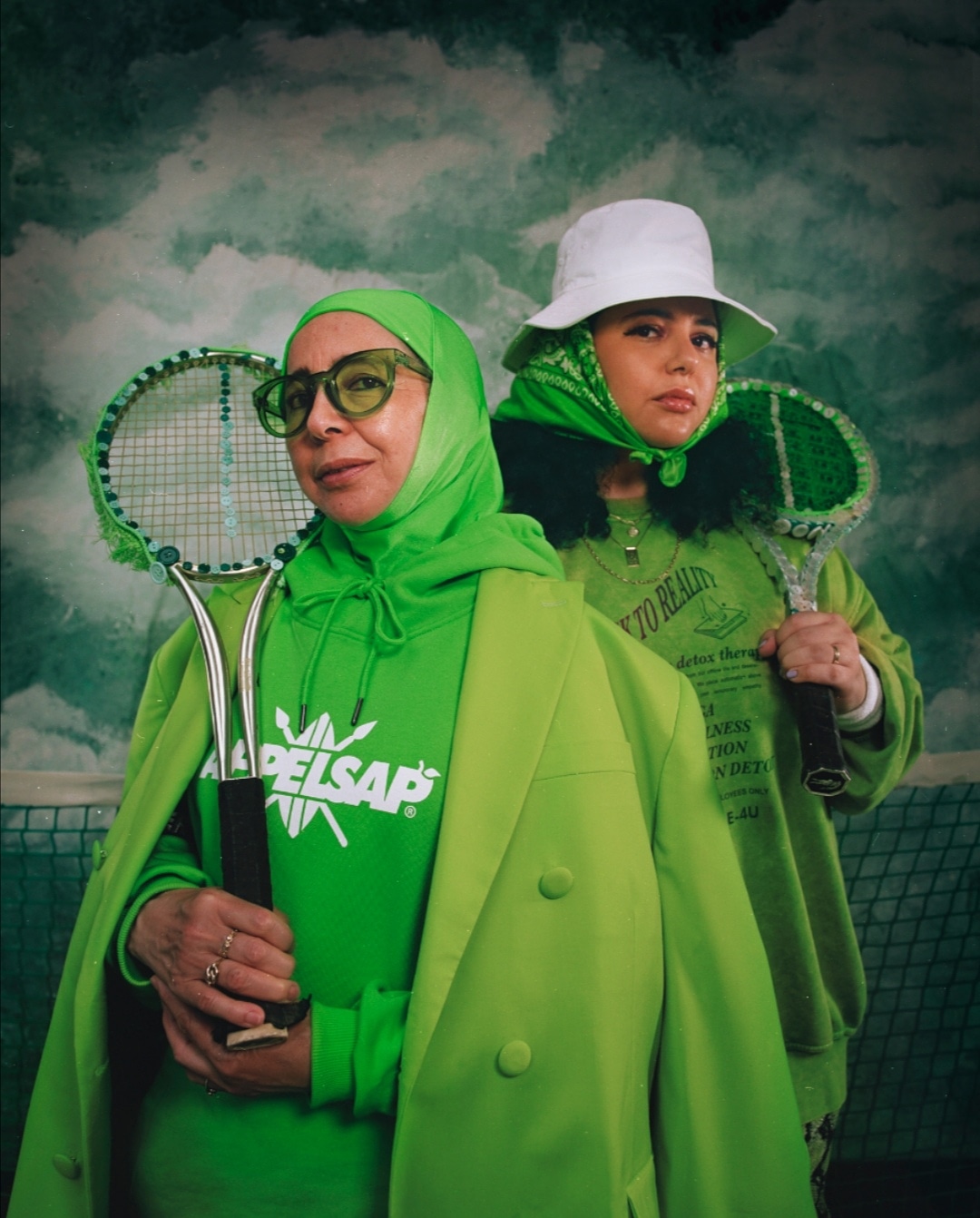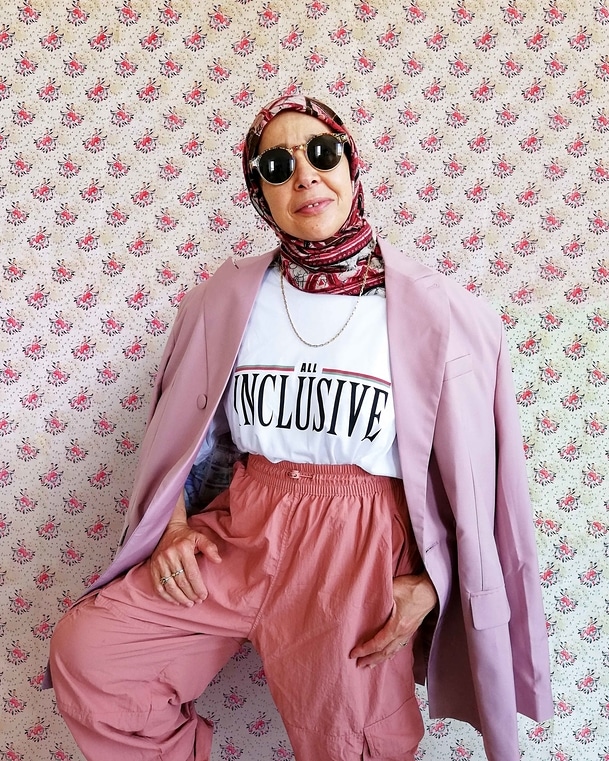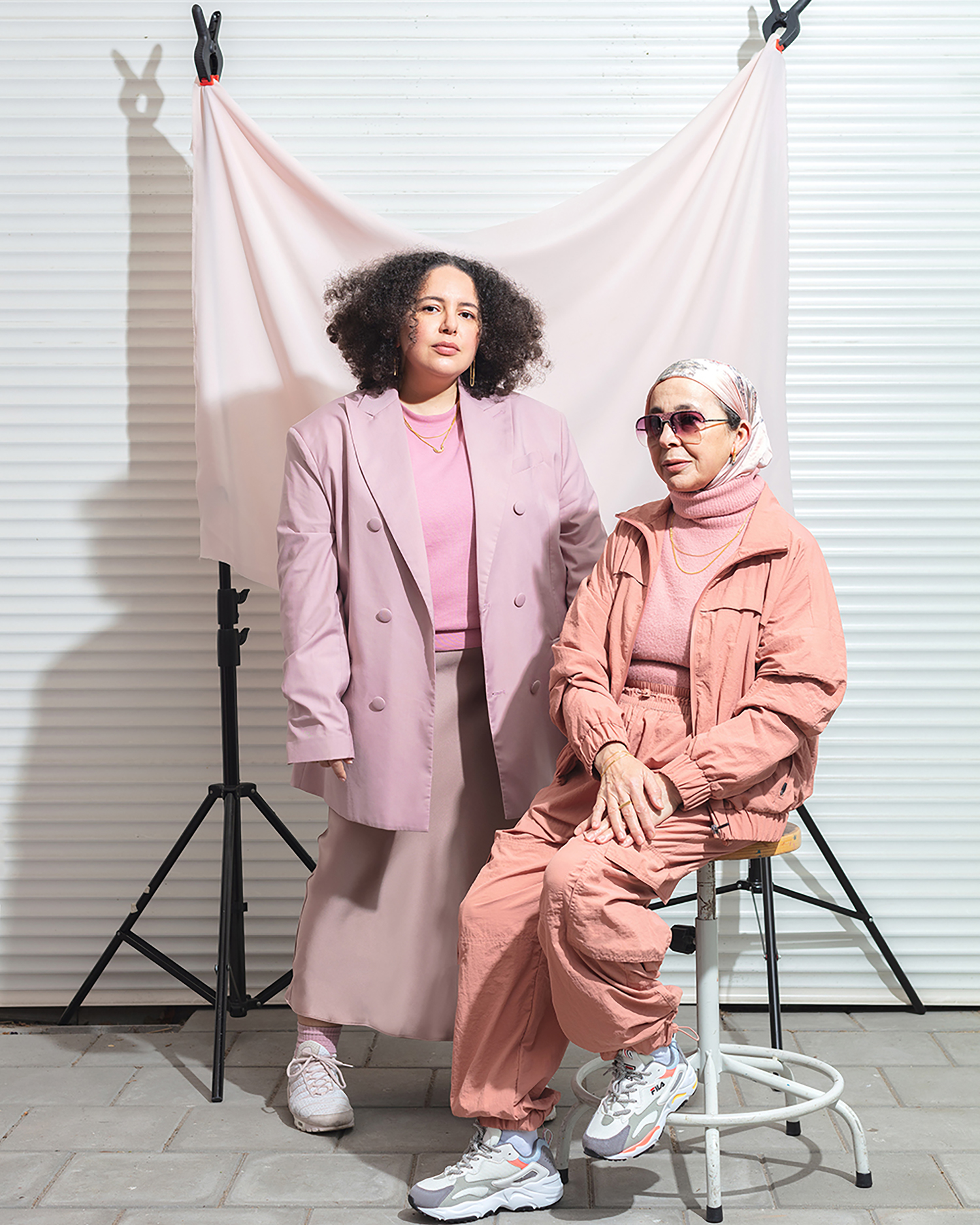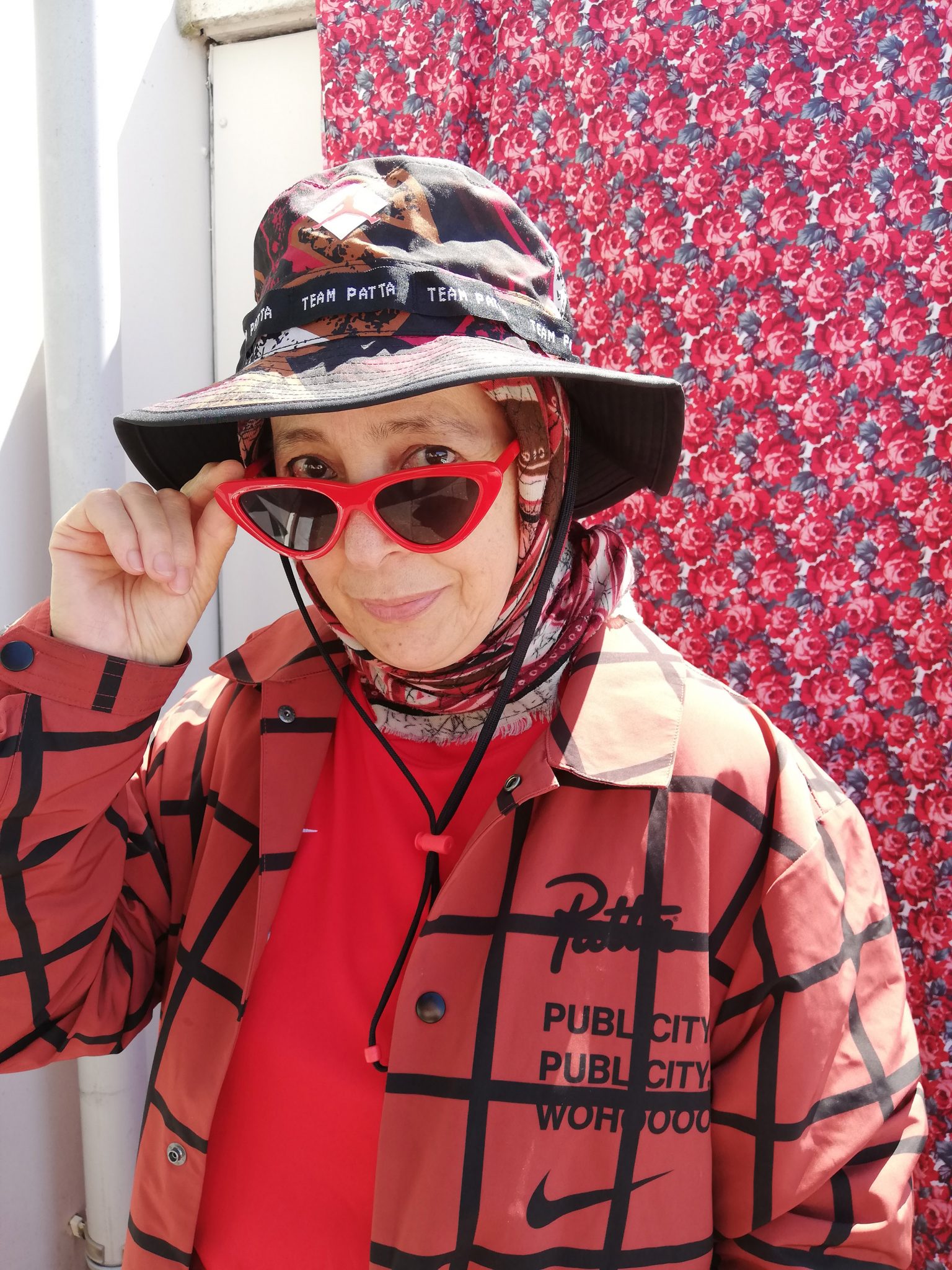The dust has barley began to settle on 2020 and the new decade it has ushered in, and yet, we have already been graciously blessed with a socio-cultural read so effortlessly-and-tongue-in-cheekly delivered by director and screenwriter Bong Joon-ho while accepting his award at the Golden Globes this past week for his latest masterful cinematic offering in the form of Parasite. Joon-ho had this to say in his acceptance speech “once you overcome that one inch tall barrier of subtitles, you will be introduced to so many more amazing films,” class is officially in session and I stan. While my point in writing this is not to engage with that particular moment of shade a la cultural critique, it did present an interesting thesis with which I will attempt to speak about the styling work of Meryem Slimani aka meryemfirst and her instagram streetwear style icon mother Najate. By interesting thesis, I mean my personal take away from and translation of Bong Joon-ho’s read. This being that the all pervasive hegemonic gaze does not know how to inhabit the worlds, dreams, desires and art of our subjectivities without colonising and/or seeking to translate the untranslatable into its own cultural economy. Now, back to Meryem Slimani and Najate.

Photograph by Lois Cohen
The narratives of our intimate and public lives, the many journeys we have travelled, people we have encountered and perhaps feelings we have felt can sometimes be read on how we decide to fashion ourselves; how we fashion ourselves as people. Textile collisions and harmonies of the so called global north and south, of ekasi and amasububs, of Morocco and Holland. Although Meryem was born and lived in Holland with her parents until the age of 3 months, she was raised in Morocco by her grandparents until she was old enough to join her parents again in Holland for the start of elementary school. Speaking to her about this time in her life and what she might recall from it, she had this to say:
The first years of my life were probably the most traumatic and the cause of most of my issues because I grew up in Morocco without my parents. I never knew how deep my trauma was until I became a mother and it opened up all those old wounds I had blocked and hidden for so many years as a way to protect myself… [One of the] only good thing I remember is always being with my grandfather, he truly was the love of my life and would take me everywhere with him even the mosque. I still have flashbacks of me sitting in the corner and seeing all the men praying. Another good memory from Morocco is the house of my grandparents good friends which had an open rooftop as most old ryad homes had in that time. I would always say I want to go there because I could look at god and everything (meaning I could see the sky in my childlike brain that translated to god). I also remember going to school in holland those first months and not speaking a word of dutch, in Holland you always start the morning at school in a circle and everyone would tell what they did in the weekend and me always loving to talk I would just tell my story in Arabic not caring if my class mates and teacher understood a word of it. I think that urge within my 4 year old self of wanting to tell my story regardless if people would get it has always been a part of me until this day and also kept me alive through the darkest hours of my depression and trauma.

Photograph by Meryem Slimani
This turning away from translating herself, her intimate experiences as a Muslim Moroccan woman living and having have grown up in the Netherlands- what is double consciousness -and the very language that is the paint to this many material canvas of lived experience, comes through in the very styling she does. There is a learned behaviour by hegemonic society and its cultural institutions- even in the world of fashion, something so personal as how you choose to drape your flesh -to prescribe labels of knowing and desirability within the boundaries of its own language. One of linearity, imagined borders and checked boxes. These are usually constructed and dictated by a cis-het white male perspective. A historical and cultural gaze that also bares an incredibly complicated and problematic relationship to age, body size and race. When individuals of certain subjectivities imagine and create work and culture outside of this gaze we are more often than not framed as representatives of a whole marginalised collective; again our work stripped by the confines of externally constructed categories. Speaking to Meryem about her fashion blogging work in the beginning, to her work with her mother Najate and how it has been framed she had this to say:
It was really awkward for me because at that time I wasn’t really plus size and felt out of place because I was mostly sharing my perspective from a mental health side and how that could affect your relationship with your body. My body was never the main issue or topic on my blog, it was mostly fashion and mental health I shared. At some point I got frustrated with never fitting into any of those blogger boxes whether it was the plus size community, sneaker community or mental health community. I was body positive but my style was more fitting for streetwear. I wore streetwear but did not fit the blonde appropriating or aaliya-esque look you always saw on streetwear platforms. And I spoke about mental health way before it was cool to do so and it probably made most people feel uncomfortable, also I spoke about mental health while going through a heavy depression and not after the fact with tips and tricks on how to get over it so it was very personal which obviously clashed with the instagram perfect filter image we all know too well.

Photograph by Michel Wongsomenawi
If anything one cannot deny that the styling work the pair have turned out in the world of streetwear is fashioning a way to re-imagine what styling could look like when it uses as the fruits of its nectar the multi-threaded-and-coloured intimate tapestry of the individual’s embodied experience. It is a space of styling where the distinctions and clear lines between north and south, Moroccan and Dutch, international and regional become muddled and confused. There is a self-aware commitment from a place of stylish imagination, that comes through in Meryem Slimani’s work to confuse easy and one dimensional ways of being known; of being translated. A commitment to undo the distortions of the minds eye through fresh fits, echoed by her during our email conversation as she expresses:
At some point during my blogging phase I felt so uninspired by all those communities but mainly by streetwear and the same people and topics were getting attention over and over again without having real substance. But more importantly I thought to myself it would probably make for more interesting and unique images that would make my work stand out and hopefully reach more people with time. Because which elderly hijabi woman of color was being portrayed this way? Not a single one. And I knew I had something special that no one else had. I just want to tell my stories and show the world that people have more in common when they open up to each other. On the other hand I also am showing that women no matter their size, age, mental health, religion etc can perfectly decide for themselves what they do or don’t with their lives and bodies and can live unapologetically without the approval or judgement of society or their community. It’s okay to be you, it’s okay to be different, it’s okay to choose your own path and I hope people in general but mostly women of color and specifically from the mena (middle east/north Africa) diaspora are able to see themselves in us and it will give them assurance that they too can stand tall and be proud of themselves, their roots and the choices they make.

Photograph by Meryem Slimani.



















































